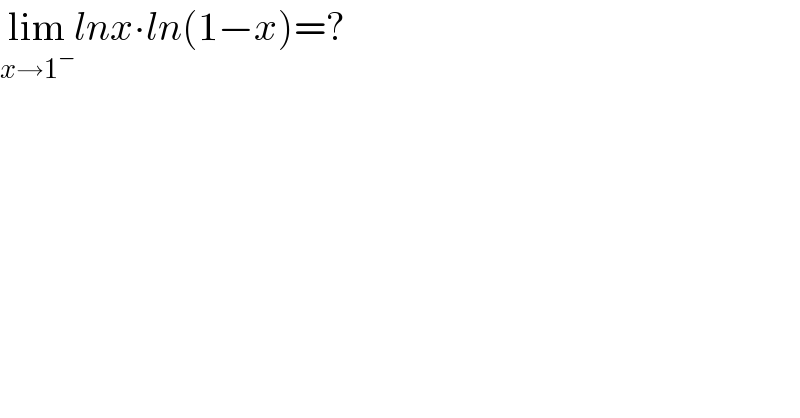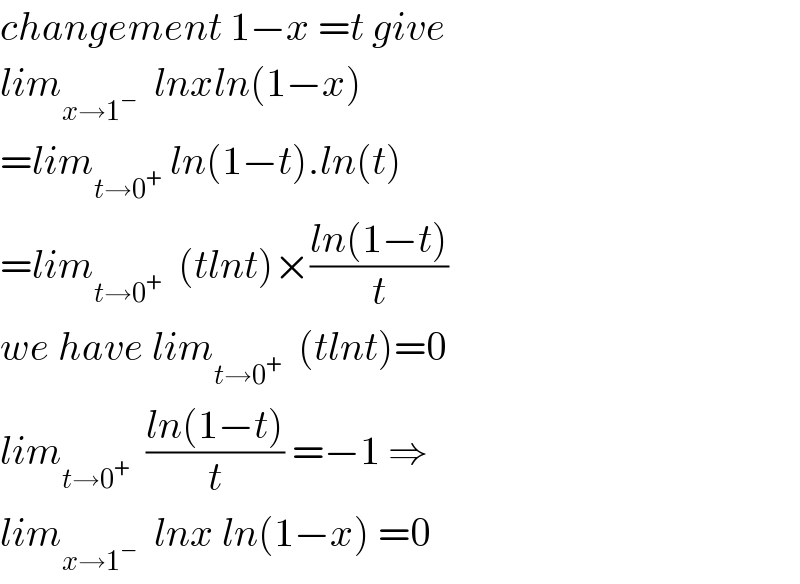Question Number 78122 by Tony Lin last updated on 14/Jan/20

$$\underset{{x}\rightarrow\mathrm{1}^{−} } {\mathrm{lim}}{lnx}\centerdot{ln}\left(\mathrm{1}−{x}\right)=? \\ $$
Commented by msup trace by abdo last updated on 14/Jan/20

$${changement}\:\mathrm{1}−{x}\:={t}\:{give} \\ $$$${lim}_{{x}\rightarrow\mathrm{1}^{−} } \:\:{lnxln}\left(\mathrm{1}−{x}\right) \\ $$$$={lim}_{{t}\rightarrow\mathrm{0}^{+} } \:{ln}\left(\mathrm{1}−{t}\right).{ln}\left({t}\right) \\ $$$$={lim}_{{t}\rightarrow\mathrm{0}^{+} } \:\:\left({tlnt}\right)×\frac{{ln}\left(\mathrm{1}−{t}\right)}{{t}} \\ $$$${we}\:{have}\:{lim}_{{t}\rightarrow\mathrm{0}^{+} } \:\:\left({tlnt}\right)=\mathrm{0} \\ $$$${lim}_{{t}\rightarrow\mathrm{0}^{+} } \:\:\frac{{ln}\left(\mathrm{1}−{t}\right)}{{t}}\:=−\mathrm{1}\:\Rightarrow \\ $$$${lim}_{{x}\rightarrow\mathrm{1}^{−} } \:\:{lnx}\:{ln}\left(\mathrm{1}−{x}\right)\:=\mathrm{0} \\ $$
Commented by Tony Lin last updated on 14/Jan/20

$${thanks}\:{sir} \\ $$
Commented by msup trace by abdo last updated on 14/Jan/20

$${you}\:{are}\:{welcome} \\ $$
Answered by john santu last updated on 14/Jan/20

$${using}\:{by}\:{series}? \\ $$
